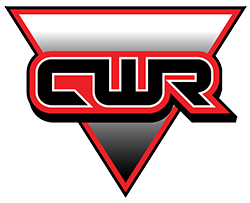Optimized Large-Scale Cooling Systems in Washington

Industrial refrigeration systems play a crucial role in various sectors, including food processing, pharmaceuticals, and chemical manufacturing. While these systems are essential for maintaining product quality and safety, they also pose significant risks if not properly managed. Understanding and implementing safety measures is critical to protect workers, maintain operational integrity, and comply with regulations. Below is a comprehensive guide on safety considerations in industrial refrigeration.
Understanding the Hazards
- Chemical Hazards. Some refrigerants, such as certain hydrofluorocarbons (HFCs), can be toxic and pose health risks if leaked. Lubricants and oils can also be hazardous if mishandled or spilled.
- Mechanical Hazards. Moving parts like compressors, fans, and other components can cause injuries if proper safeguards are not in place. Also, refrigeration systems often operate under high pressure, which can lead to explosions or ruptures if not correctly maintained.
- Thermal Hazards. Both very high and very low temperatures can cause burns or frostbite, respectively. Handling refrigerants at extremely low temperatures can cause severe cold burns as well.
- Electrical Hazards. Faulty wiring, improper grounding, and exposure to moisture can lead to electrical shocks or fires.
Key Safety Measures
Fortunately, there are certain steps you can take to minimize risk:
Proper Training
Ensure that all personnel are adequately trained in operating and maintaining refrigeration systems. This includes understanding the hazards, emergency procedures, and proper use of personal protective equipment (PPE). Regularly update training programs to include new safety protocols and technologies.
Regular Maintenance and Inspections
Schedule regular inspections to identify and address potential issues before they become hazards. This includes checking for leaks, inspecting electrical components, and ensuring all safety devices are functional. Finally, implement a preventive maintenance program to keep the system in optimal condition, reducing the risk of breakdowns and accidents.
Leak Detection and Management
Install leak detection systems to monitor for refrigerant leaks continuously. These systems should trigger alarms and automatic shutdowns in case of a significant leak. Ensure that areas where refrigerants are used are well-ventilated to prevent the buildup of hazardous gasses.
Personal Protective Equipment (PPE)
Provide and enforce the use of appropriate PPE, such as gloves, goggles, face shields, and respiratory protection. Regularly inspect PPE to ensure it is in good condition and replace it as necessary.
Safety Protocols and Emergency Procedures
Establish and enforce clear safety protocols for operating, maintaining, and repairing refrigeration systems. Develop and regularly practice emergency response plans, including evacuation procedures, first aid, and spill containment.
Compliance with Regulations
Ensure compliance with all relevant safety regulations and standards, such as those set by the Occupational Safety and Health Administration (OSHA) and the Environmental Protection Agency (EPA). Conduct regular safety audits to ensure ongoing compliance and identify areas for improvement.
Risk Assessment and Management
Conduct thorough risk assessments to identify potential hazards and implement measures to mitigate them. Maintain detailed records of risk assessments, safety inspections, and incident reports to track safety performance and make informed decisions.
Optimized Large-Scale Cooling Systems in Washington
Safety in industrial refrigeration is paramount to protecting workers, maintaining efficient operations, and ensuring regulatory compliance. By understanding the hazards and implementing comprehensive safety measures, your business can minimize risks and create a safer working environment.
Central Washington Refrigeration designs, builds, installs, and maintains industrial cooling systems in Washington, Oregon, and Idaho. We will work with you to ensure your cooling systems are safe and efficient. To learn more about our services and how we can make your business safer, contact us today.
